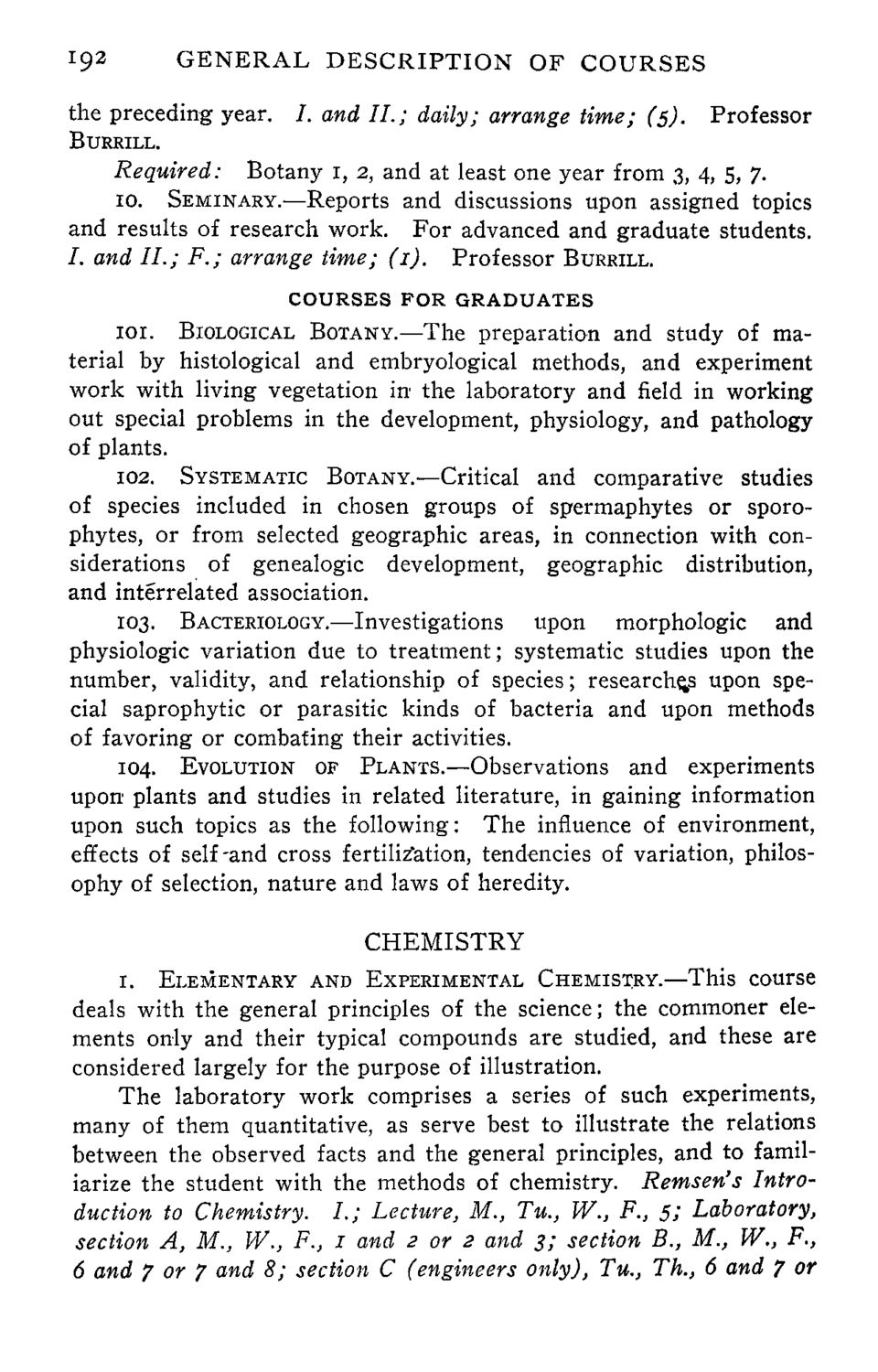| |
| |
Caption: Course Catalog - 1899-1900
This is a reduced-resolution page image for fast online browsing.

EXTRACTED TEXT FROM PAGE:
192 GENERAL DESCRIPTION OF COURSES / . and II.; daily; arrange time; (5). Professor the preceding year. BURRILL. Required: Botany 1, 2, and at least one year from 3, 4, 5, 7. 10. SEMINARY.—Reports and discussions upon assigned topics and results of research work. For advanced and graduate students. / . and II.; F.; arrange time; (1). Professor BURRILL. COURSES FOR GRADUATES 101. BIOLOGICAL BOTANY.—The preparation and study of material by histological and embryological methods, and experiment work with living vegetation in the laboratory and field in working out special problems in the development, physiology, and pathology of plants. 102. SYSTEMATIC BOTANY.—Critical and comparative studies of species included in chosen groups of spermaphytes or sporophytes, or from selected geographic areas, in connection with considerations of genealogic development, geographic distribution, and interrelated association. 103. BACTERIOLOGY.—Investigations upon morphologic and physiologic variation due to treatment; systematic studies upon the number, validity, and relationship of species; researches upon special saprophytic or parasitic kinds of bacteria and upon methods of favoring or combating their activities. 104. EVOLUTION OF PLANTS.—Observations and experiments upon plants and studies in related literature, in gaining information upon such topics as the following: The influence of environment, effects of self-and cross fertilisation, tendencies of variation, philosophy of selection, nature and laws of heredity. CHEMISTRY 1. ELEMENTARY AND EXPERIMENTAL CHEMISTRY.—This course deals with the general principles of the science; the commoner elements only and their typical compounds are studied, and these are considered largely for the purpose of illustration. The laboratory work comprises a series of such experiments, many of them quantitative, as serve best to illustrate the relations between the observed facts and the general principles, and to familiarize the student with the methods of chemistry. Remsen's Introduction to Chemistry. I.; Lecture, M., Tu., W., F., 5; Laboratory, section A, M., W., F., 1 and 2 or 2 and 3; section B., M., W., F., 6 and 7 or 7 and 8; section C (engineers only), Tu., Th., 6 and 7 or
| |